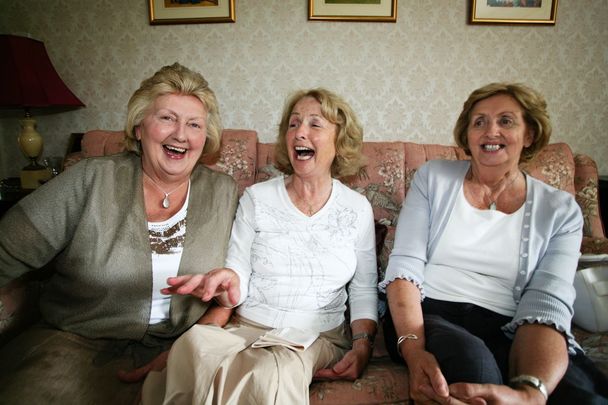The term “craic” defines the Irish people. It expresses a sense of fun and joy that only we Irish can provide and a love for life that other nationalities could never properly conceive of.
Akin to many other cultural phenomena, traditions, and personalities that the Irish hold dear – see Saoirse Ronan, Eamon De Valera, many of our traditional musical instruments, and even St. Patrick himself – the word craic may not have originated in Ireland at all, but may well be a blow-in from our neighbors in Scotland and northern England.
Some English language linguists have even criticized the spelling of craic as a false attempt to claim the Irish origins of a word that originated elsewhere and should be spelled “crack.” This battle was recently taken up by Nelson McCausland, MLA and former Minister for in the Northern Ireland Executive for Culture, Arts and Leisure, in a scathing opinion piece in the Belfast Telegraph in 2016.
In his column, McCausland said that although the word is now taken as meaning fun, gossip, news, entertainment, or simply an enjoyable experience in Irish, “crak” originated in Middle English, appearing throughout northern England and Scotland to mean conversation or news before being adopted in Ireland, especially throughout Ulster, in the mid-20th century.
References to “crak” or “crack” can be found in English and Scottish folk songs dating from the mid-19th century, but it is believed that the first written records of the use of “crack” in Ireland did not appear until the 1950s.
The word gradually worked its way into the natural dialogue, however, even appearing in the work of the renowned playwright Brian Friel in the “crack” form.
From here, the word was adapted into the Irish language, changing the spelling as it did so to represent the same sounds phonetically but in a way that is true to the Irish language.

Love Irish history? Share your favorite stories with other history buffs in the IrishCentral History Facebook group.
It continued to go from strength to strength, becoming the catchphrase of legendary Raidió na Gaeltachta broadcaster Seán Bán Breathnach: "Beidh ceol, caint agus craic againn" ("We'll have music, chat and crack").
Others have argued, however, that craic was a word used in Old Irish that had fallen out of use during the post-medieval period. These linguists argue that the word was subsequently borrowed from Scots Gaelic by those living in the Northern British Isles and its return to Ireland was simply a revival of a word that had gone out of fashion for a period of time (as many words do).
McCausland is not alone in his dislike for the Gaelicization of “crack,” however. In 2013, Irish Times journalist Donald Clarke lambasted the sudden surge in the use of “craic” instead of “crack” that occurred during the 1990s as a linguistic lie brought on by the renewed confidence of the Irish people post-Italia ‘90 and "Riverdance."
In his article, Clarke quoted the former lexicographer and Irish Times columnist Diarmaid Ó Muirithe, who also implied that the use of craic is a flagrant attempt by the Irish to cash in on the memories of the “good aul’ times” i.e. the Ireland of a more rural era.
“The constant Gaelicisation of the good old English/Scottish dialect word crack as craic sets my teeth on edge,” Ó Muirithe said of the spelling.
“We find advertisements proclaiming ‘music, songs, dancing and craic’; the implication is that craic = boozing and high jinks, great fun as it used to be.”
The outspoken Irish journalist Kevin Myers also slammed the transition from “crack” to “craic,” maintaining that throughout the Celtic revival right up to the music revolution in the 1970s, “crack” was used. It wasn’t until the arrogance of the Celtic Tiger convinced us that nothing was better than being Irish, he claims, that the “craic” emerged to gloss over “an entirely new form of Irishness that pretended to be ancient, but was really quite modern.”
“For changing the spelling from ‘crack’ to ‘craic’ coincided with the moment that Irishness became self-conscious, winsome, stylized, conceited, boastful, Dingle became Daingean, and most of all, everything became phony, phony phony,” Myers wrote.
Whichever side of the argument you are on, the spelling as Gaeilge of craic is the one that has become the most common and widely used in Ireland today, spreading from its usage in the media in the 1990s to become an iconic attribute of Irish identity - the ability to have the craic.
But if the claims of the likes of Myers, Clarke and McCausland are true, has “the craic” become a form of elitism for Irish people still overly confident that they are the best nation and diaspora in the world?
Or are we simply just better at having the craic?
* This article was originally published in 2016, updated in Aug 2024.




Comments